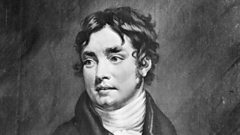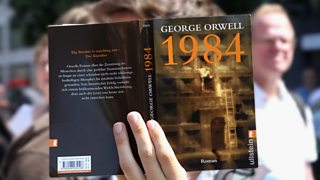Kubla Khan: A vision in a dream
Kubla Khan by Samuel Taylor Coleridge is one of the most famous poems in the English language. Rajan Datar discusses the story of this mysterious work.
“In Xanadu did Kubla Khan a stately pleasure dome decree … “ - Kubla Khan by Samuel Taylor Coleridge is one of the most famous poems in the English Language. But it is also one of the strangest. It was composed during an opium dream, it remains unfinished and according to one theory, was implicated in a war in South Africa. And what is its relation to the real life Kublai Khan, the 13th century Mongol emperor who conquered China?
Joining Rajan Datar to discuss this mysterious poem is Coleridge’s award winning biographer Richard Holmes, the poet and senior lecturer in English Dr Peter Anderson from Cape Town University in South Africa, Professor Samantha Harvey from Boise State University in the US, and the Chinese historian Professor Kent Deng from the London School of Economics.
(Photo: Royal Pavilion in the Phraya Nakhon Cave, Thailand. Credit: Mazzzur/GettyImages)
Last on
More episodes
Previous
Clip
-
![]()
Opium and the Poet
Duration: 00:47
Broadcasts
- Sat 13 Jan 2018 20:06GMT����ý World Service except Australasia, East and Southern Africa, News Internet & West and Central Africa
- Tue 16 Jan 2018 00:06GMT����ý World Service Australasia, Online, Americas and the Caribbean, UK DAB/Freeview & Europe and the Middle East only
- Tue 16 Jan 2018 09:06GMT����ý World Service except News Internet
- Tue 16 Jan 2018 18:06GMT����ý World Service Australasia
- Tue 16 Jan 2018 23:06GMT����ý World Service East and Southern Africa, South Asia, West and Central Africa & East Asia only
Featured in...
![]()
Classic literature: Reading between the lines—The Forum
From Moby Dick to the Moomins, exploring the books that captured the world's imagination
What is the role of libraries in the digital age?
Podcast
-
![]()
The Forum
The programme that explains the present by exploring the past





